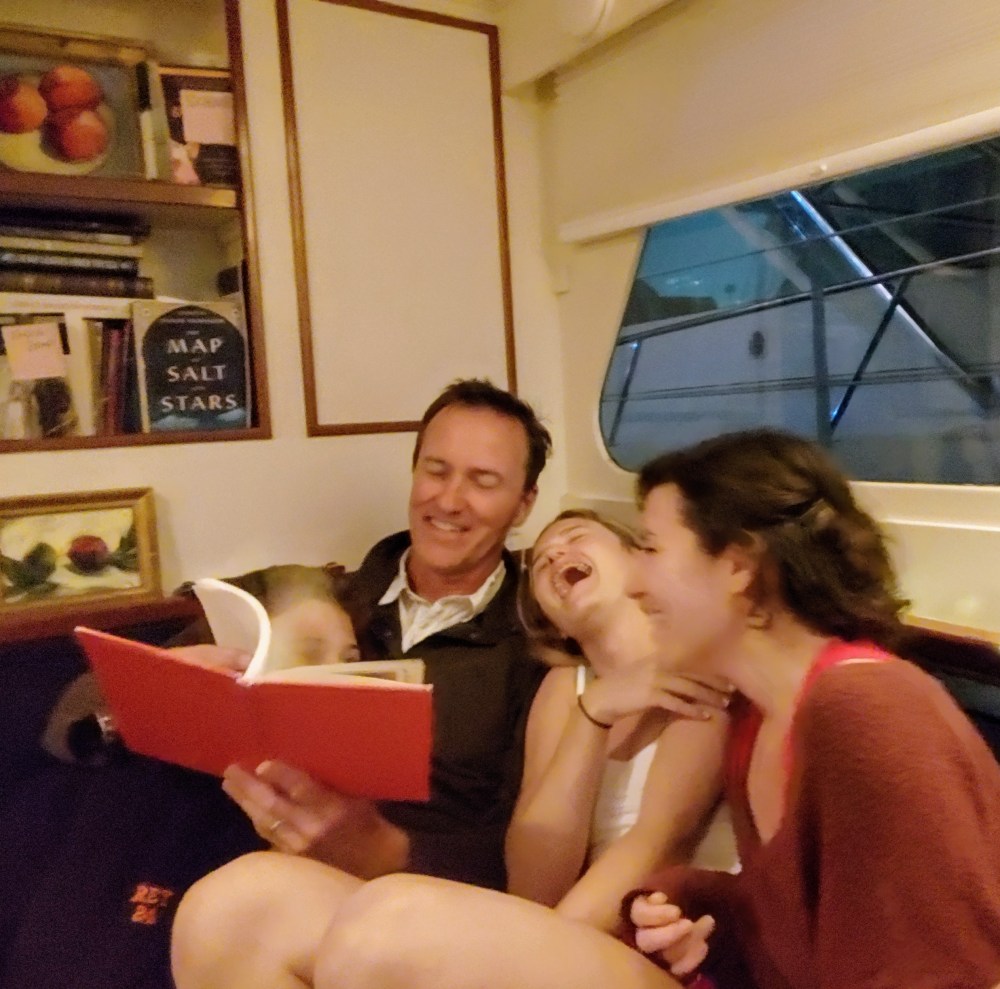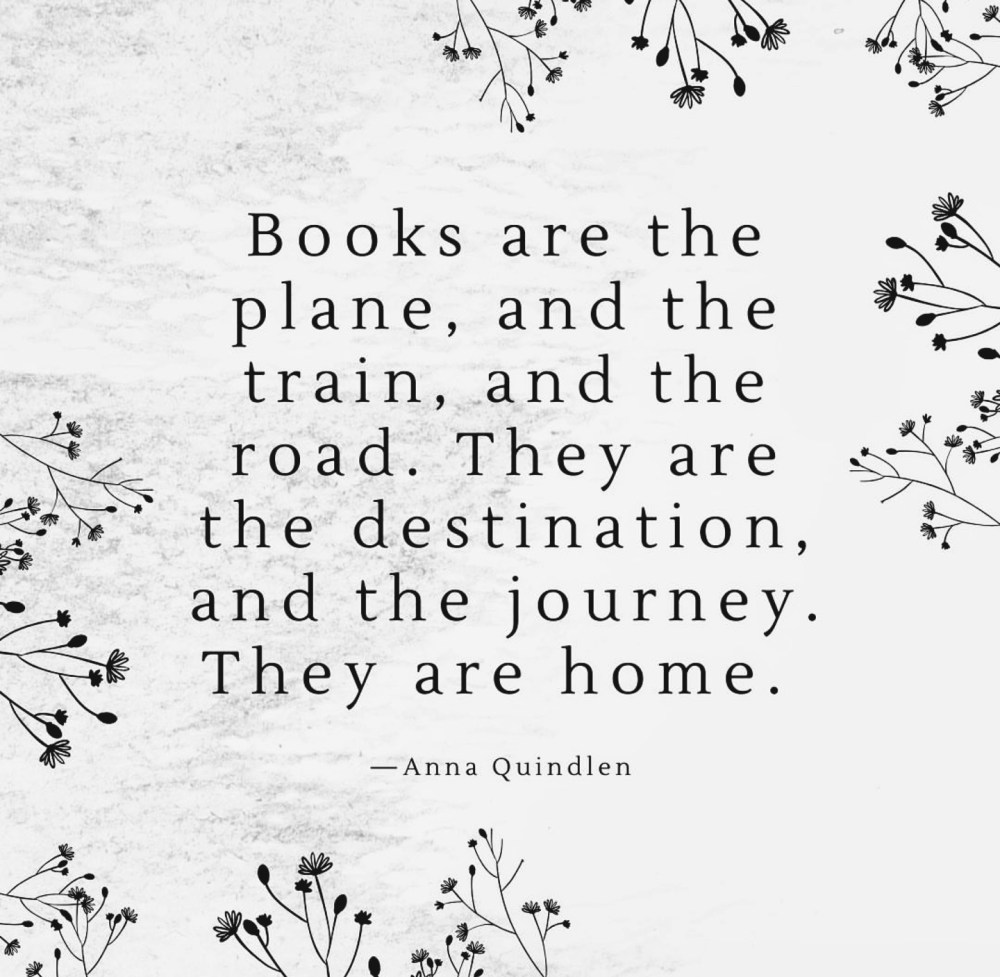If our school was a delicious home-made pie, literature-based learning would be one half of that pie, one-quarter pie would be hands-on learning (labs, art, music, travel), and the remaining one-quarter pie would be workbooks, textbooks, lectures, essays, tests and quizzes.
“Homeschooling is a superpower, when it comes to your child’s reading life and learning journey.” – Cait Curley
My figurative approach to teaching is based on a multi-sensory approach to learning, but reading is a big part of our homeschool. I combine literature with nearly every subject we study, because it expands our learning and gives us much to talk about relating to the subject. Our discussions are the pie’s ice cream topping, the a-la-mode, if you will.
There are gads of academic benefits to reading, the most obvious of which (increased ability in spelling and vocabulary) are only the tip of the literary iceberg. Classic fiction generates empathy as characters are developed slowly which allows the reader to grow alongside them. Historical fiction, memoirs, biographies and such expose students to a relatable timeline where they can imagine themselves in the story. Reading encourages kids to ask questions and helps them to understand history through stories. Free-choice reading is imperative to textbook learning.
“Historical fiction helps us fire up our students and readers because it uses emotion to make the facts matter. ” – Valerie Tripp, author
There is a website I love called, TeachingHistory.org, which has so much information for students and teachers alike. Valerie Tripp, a TeachingHistory contributor and author best known for her American Girl historical characters writes, “I believe that good historical fiction exercises a child’s imagination through a vicarious experience. It leads children to use themselves and their own lives as comparisons to the characters that lived long ago and often, far away, to reflect on their own experience, to ask their families questions. It awakens awareness, perks up perception, sparks conversations.”
PBSLearning is another site that offers teachers, parents and students supplemental information about history, art, music and other topics. They have lesson plans, essays, and mini-documentaries to further augment learning. It seems limiting to teach only from a textbook. Why wouldn’t anyone, wanting to learn anything, combine as many ways to learn that topic as possible?
The library in our house is everyone’s favorite, cozy place to be.
“There is massive evidence that self-selected reading, or reading what you want to read, is responsible for most of our literacy development. Readers have better reading ability, know more vocabulary, write better, spell better, and have better control of complex grammatical constructions. In fact, it is impossible to develop high levels of literacy without being a dedicated reader and dedicated readers rarely have serious problems in reading and writing.” – Stephen Krashen, author of The Power of Reading.
In my book, delicious pie a la mode is what modern education can taste like!
Below is a short list of notable books we have combined in recent years with subject studies for the Middle to early High School years. I will note the subject(s) that inspired the book choice in parenthesis, but the benefits of reading obviously span more than that.
Longitude by Dava Sobel (Science, History)
Fahrenheit 451 by Ray Bradbury (Science, Classic Literature, Civics)
Provenance by Laney Salisbury (Art History, Literature, Business Law)
The Salt and the Sea by Ruta Sepetys (History, Humanities)
How to Read Water by Trista Gooley (Science, Sailing)
Between Shades of Gray by Ruta Sepetys (History, Anthropology, Humanities)
The Color of Water by James McBride (History, Anthropology)
Boys in the Boat by Daniel James Brown (History, Humanities)
20,000 Leagues Under the Sea by Jules Verne (Science, Classic Literature)
The Outsiders by S.E. Hinton (Classic Literature, Anthropology, Humanities)
How to be a Good Creature by Sy Montgomery (Science, Humanities)
Animal Farm by George Orwell (History, Civics)
Ghost Boys by Jewell Parker Rhodes (History, Humanities)

Plus. Sharing a story together is pure magic when it comes to family time.
“It is what you read when you don’t have to, that determines what you will be when you can’t help it.” – Oscar Wilde
More on Stephen Krashen, author of The Power of Reading:
“Krashen argues that FVR (free voluntary reading) has a dramatic effect on second-language learners, vocabulary acquisition, cognitive development, and writing style, and is the key to linguistic improvement.” – Curriculum Connections/School Library Journal
“This title will be of particular interest to language and linguistics professionals and educators concerned with equipping children to navigate their worlds. Highly Recommended.” – Library Media Connection
“Dr. Krashen continues to make the case for FVR. He explores new research since the book’s original edition in 1993, discusses the role of libraries and the importance of reading, and considers the effects of television on reading.” – American Libraries
Artful Anna Quindlen quote found on the internet, designer unknown.
Cait Curley is one of the “Homeschool Sisters” and co-founder of the Kindred Collective. Find your tribe at kindredhomeschool.com
©2020 Lynne Rey
Blog Published by GoTimbalero Press
All rights reserved. No part of this blog or blog post may be used or reproduced in any manner whatsoever without written permission, except in the case of brief quotations. This is a narrative work; names, characters, places, and incidents are based on the author’s memory and written from the author’s perspective.
Photos are the property of the Rey family archive. For information or permission, address GoTimbalero Press, P.O. Box 247, Newport, RI 02840
Editing and Design by Lynne Rey


What a good teacher you are!
LikeLiked by 1 person
Lynne,Love the image of the delicious looking home school pie. One point I’d love to discuss with you some day.ThoughI agree that historical novels are a wonderful road to develop some historical knowledge and curiosity i feel cheated with the poetic liscence that the author is taking with the facts . If you have time tell me what you think about my comment. Love to all. Niki
Sent from my iPad
>
LikeLiked by 1 person
Hi Niki! First, we hope authors are not distorting hard facts, only massaging soft maybes in order to make an historical sequence more interesting. That being said, we use Historical Fiction to empathize with and understand history. It does not replace our History Books, it augments them. So we can certainly fact-check as we discuss. However, I have occasionally found historical tours to simplify, bend or glorify truths to better appeal to the masses. So I know what you mean; that is disappointing.
LikeLike